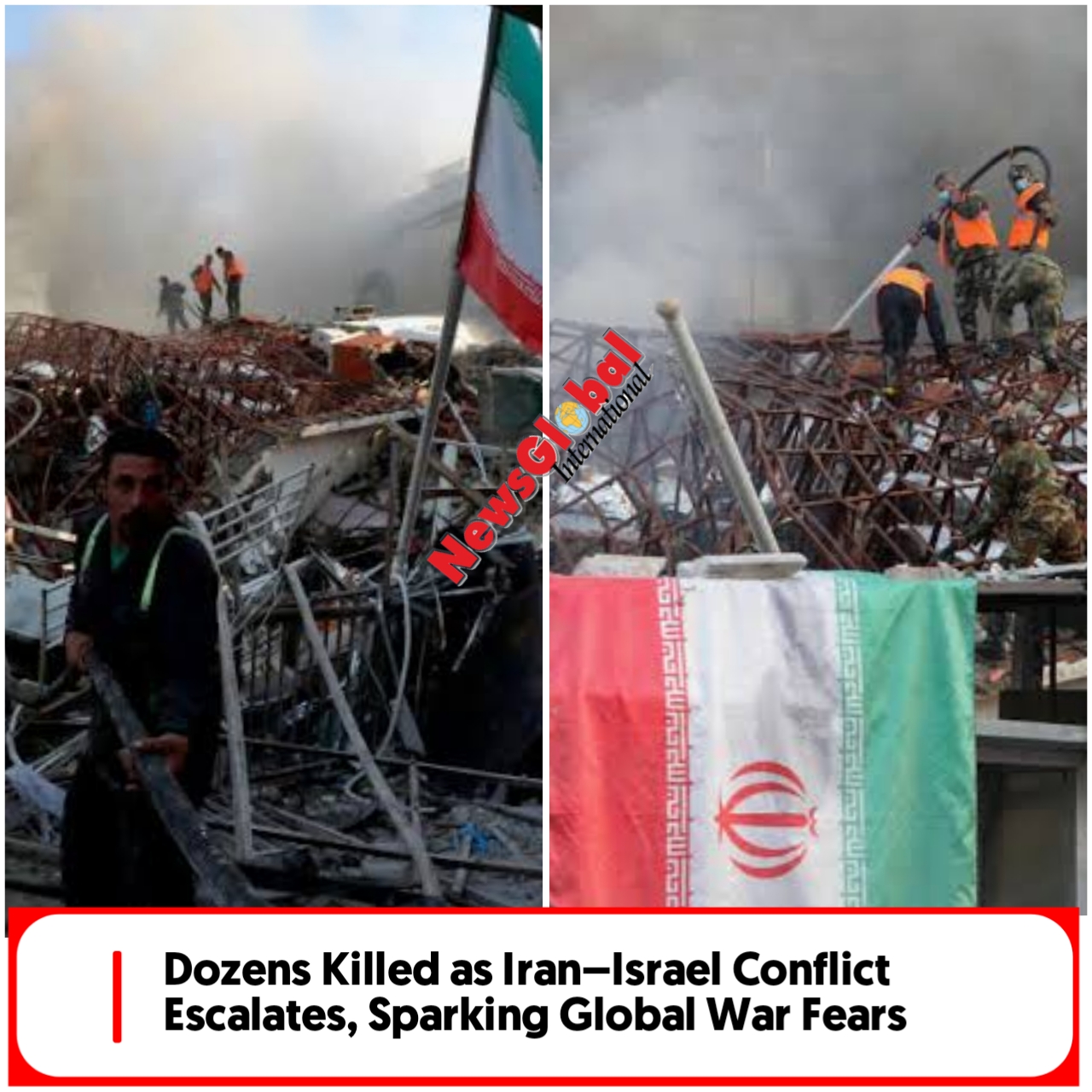“Middle East on Edge: Iran and Israel Exchange Deadly Strikes, Raising Alarm Over Regional Stability”
Tensions in the Middle East reached a boiling point this week as Iran and Israel exchanged devastating military strikes, leaving dozens dead and hundreds injured, and prompting widespread international concern over the possibility of a full-scale war.
The conflict intensified after Israeli airstrikes reportedly targeted key Iranian infrastructure, including facilities in Tehran, Natanz, and Isfahan. Iranian state media confirmed that the attacks resulted in the deaths of at least 78 people, including military personnel and scientists working on nuclear programs. Several government buildings and defense installations were also damaged.
In retaliation, Iran launched an unprecedented wave of over 200 ballistic missiles and drones aimed at major Israeli cities such as Tel Aviv, Haifa, and Jerusalem. While Israel’s Iron Dome and David’s Sling defense systems successfully intercepted the majority of the incoming projectiles, a few broke through the shield, resulting in the deaths of at least nine civilians and injuries to more than 100 others.
The reciprocal strikes have left both nations on high alert. In a televised address, Iran’s Revolutionary Guard warned that any further Israeli aggression would trigger a “massive and crippling response,” including potential attacks on Israel’s water and energy infrastructure. Israeli Prime Minister Benjamin Netanyahu, meanwhile, vowed that his country would defend itself “with full force” and warned Tehran against underestimating Israel’s military capabilities.
Global powers, including the United States, Russia, and China, have called for immediate de-escalation. The United Nations Security Council has scheduled an emergency meeting, with many diplomats fearing that the Israel–Iran conflict could draw in other countries and ignite a broader regional war involving Lebanon’s Hezbollah, Syria, and possibly Gulf states.
Military analysts describe the current situation as one of the gravest geopolitical crises in the region in decades. “This isn’t just saber-rattling,” said one defense expert. “What we are seeing is real-time warfare between two powerful states with a long history of hostility—and that’s extremely dangerous for global stability.”
As of now, both Iran and Israel have fortified their borders and put their air forces on standby, while civilians in both nations brace for the worst. In many parts of Israel, bomb shelters have been reopened, and schools have been closed. Similarly, in Iran, the government has placed emergency services on high alert and advised citizens to avoid crowded areas.
The world watches anxiously, hoping that diplomacy can prevail before the violence spirals further out of control.

